Buy Disarming the Suicidal Mind -Evidence-Based Assessment and Intervention – Timothy Spruill Course at GBesy. We actively participate in Groupbuys and are committed to sharing knowledge with a wider audience. Rest assured, the quality of our courses matches that of the original sale page. If you prefer, you can also buy directly from the sale page at the full price (the SALEPAGE link is directly provided in the post).
Disarming the Suicidal Mind -Evidence-Based Assessment and Intervention by Timothy Spruill,
Salepage link: At HERE. Archive:
- Faculty:
- Timothy Spruill
- Duration:
- 6 Hours 21 Minutes
- Format:
- Audio and Video
- Copyright:
- Aug 27, 2018
Description
From Triage to Tomorrow Suicide deaths have increased dramatically in recent years to 40,000 Americans annually, a leap that has been attributed variously to the Great Recession, wars in Iraq and Afghanistan, and access to guns and prescription pain killers – but what about medical error? Thirty-nine percent of suicide completers have been seen in an ER within the past year (many for mental health complaints and self-harm), while 59% of ER patients with injuries from deliberate self-harm do not receive a psychiatric assessment. Despite these trends, graduate training in assessment of imminent self-harm is often limited, offering little practical experience in counseling labs due to intake policies designed to avoid liability.
This recording offers a revealing look inside the complex and rapidly expanding knowledge-base concerning the epidemiology of suicide and self-harm, while exploring the most effective measures you can take to save your patients’ lives. Learn to recognize risk factors associated with suicide attempts, as well as long-term and imminent warning signs, and accurately assess self-harm and suicide risk. Discover evidence-based interventions and explore the challenges of treatment across populations, including patients with addictive behaviors. Finally, we will deconstruct the emergency mental health protocols of today and identify common thinking errors leading to diagnostic and intervention mistakes that actually worsen crisis situations.
Handouts
| Manual – Disarming the Suicidal Mind (8.41 MB) | 56 Pages | Available after Purchase |
Outline
INTRODUCTION TO THE GROWING PROBLEM OF SUICIDE IN AMERICA
- Need for concern: statistics revealing the increasing trend in suicidal ideation, attempts, deaths
- National data
- State-specific data
- Career risks for the professional counselor
- Factors contributing to the failure of adequate assessment and triage
- Inadequate training of physicians and professional counselors
- Inadequate funding for mental health (despite numerous parity laws)
- Shifting of the burden of assessment to emergency rooms
- Poorly trained law enforcement officers initiating involuntary admissions
EPIDEMIOLOGY — CONTRIBUTING FACTORS
- Risk factors
- Demographic risk factors (age, gender, ethnicity, etc.)
- Environmental risk factors (adverse childhood experiences)
- Addictions
- Mental illness
- Economic risk factors (employment)
- Warning signs
- Feeling alone—isolated from family/friends
- Feeling like a “burden” to others
- Little or no fear of death
- Red herrings
- Suicide notes
- Contingent suicide threats
- Cutting
- Pending divorce
- Limitations of the research and potential risks
ASSESSMENTS/MEASURES TO AID IN DETERMINING RISK LEVEL — A COMPREHENSIVE STRATEGY
- Mental status exam
- Collateral information
- Adults
- Relative lethality of plans/attempt (Risk/Rescue Scale)
- Hopelessness (Beck Hopelessness Inventory)
- Reasons for living (Brief Reasons for Living Scale)
- Adverse childhood experiences (A.C.E. Questionnaire)
- Teens and children
- Predictive/protective factors identified in the research
- Special populations
- Veterans
- LGBT
- Promising, novel methods for assessing risk
- Implicit cognitions—measuring implicit associations with death and suicide
COMMON INTERVENTIONS, MISTAKES, THINKING ERRORS & ETHICAL ISSUES
- Our natural tendencies to err
- Feelings of “rightness” are not reliable indicators
- External factors contributing to errors
- Internal factors contributing to errors
- Self-care is critical
- Two types of thinking (fast and slow)
- Dangers of lazy, “fast” associative thinking
- Substitution of easy-to-answer question for more difficult and complex question
- Type 1 vs. Type 2 errors (legal liability and ethical issues)
- Patient autonomy and self-determination
- Confidentiality limits
INTERVENTIONS AND TREATMENT PLANNING
- Non-judgmental, empathic listening
- Acknowledging reason for concern
- Taking advantage of ambivalence
- Evidence-based interventions to reduce subsequent suicide attempts
- DSM-5® new definitions and terminology
- Assess suicidal ideation at the start of every visit
- DSM-5 level one screening questionnaire
- Suicidal Behavior Disorder
- Non-Suicidal Self-injury
CHALLENGES TO ACHIEVING SUCCESSFUL TREATMENT OUTCOMES
- Means restriction
- Social support — supervision
- Follow-up counseling
- Exploring alternative responses should suicidal thoughts increase in frequency/intensity
WHEN LOSING A PATIENT TO SUICIDE — REMAINING RESILIENT AND MOVING FORWARD
Faculty
Timothy Spruill, MA, EdD Related seminars and products: 1
Timothy Spruill, MA, EdD, has conducted more than 3,500 emergency psychiatric assessments in one of Orlando’s busiest emergency departments as a consultant at Advent Health, where he is a founding faculty member of the emergency medicine residency program. Through his work with high-risk patients and his research in the area of suicidology, Dr. Spruill has developed an evidence-based approach to emergency mental health that urges progress far beyond the fragile gains of traditional (and contemporary) psychological triage.
His extensive experience conducting assessments and evaluations reaches back to his work in private psychiatric hospitals in the early 1980s. Dr. Spruill earned his Master’s degree in counseling psychology from George Mason University in 1977. After four years of teaching, he left for the applied world of a community psychiatric setting and pursued his Doctorate in counseling psychology at Western Michigan University. In addition to his ongoing consulting work, he returned to academia in 1991 to share his experience and extend his research capabilities. During his time with Andrews University and, subsequently, Advent Health, he has continued to collect data on suicide and conduct research in his chosen field of behavioral medicine. Since 2010, he has taught continuing education courses on the topics of suicide assessment, preventing medical errors, and violence. He has also presented his findings at numerous conferences, traveling as far as Cape Town, South Africa, to speak on suicide.
Speaker Disclosures:
Financial: Timothy Spruill is assistant director of Behavioral Medicine, Family Medicine and Emergency Medicine at Florida Hospital. He receives a speaking honorarium from PESI, Inc.
Non-financial: Timothy Spruill has no relevant non-financial relationships to disclose.
Buy the Disarming the Suicidal Mind -Evidence-Based Assessment and Intervention – Timothy Spruill course at the best price at GBesy.. After your purchase, you will get access to the downloads page. You can download all the files associated in your order at here and we will also send a download notification email via your mail.
Unlock your full potential with Disarming the Suicidal Mind -Evidence-Based Assessment and Intervention – Timothy Spruill courses. our courses are designed to help you excel.
Why wait? Take the first step towards greatness by purchasing Disarming the Suicidal Mind -Evidence-Based Assessment and Intervention – Timothy Spruill courses today. We offer a seamless and secure purchasing experience, ensuring your peace of mind. With our trusted payment gateways, Stripe and PayPal, you can confidently complete your transaction knowing that your financial information is protected.
Stripe, known for its robust security measures, provides a safe and reliable payment process. With its encrypted technology, your sensitive data remains confidential throughout the transaction. Rest assured that your purchase is protected.
PayPal, a globally recognized payment platform, offers an additional layer of security. With its buyer protection program, you can feel confident in your purchase. PayPal ensures that your financial details are safeguarded, allowing you to focus on your learning journey.
Is it secure? to Use of?
- Your identity is completely confidential. We do not share your information with anyone. So it is absolutely safe to buy the Disarming the Suicidal Mind -Evidence-Based Assessment and Intervention – Timothy Spruill course.
- 100% Safe Checkout Privateness coverage
- Communication and encryption of sensitive knowledge
- All card numbers are encrypted using AES at relaxation-256 and transmitting card numbers runs in a separate internet hosting atmosphere, and doesn’t share or save any data.
How can this course be delivered?
- After your successful payment this “Disarming the Suicidal Mind -Evidence-Based Assessment and Intervention – Timothy Spruill course”, Most of the products will come to you immediately. But for some products were posted for offer. Please wait for our response, it might take a few hours due to the time zone difference.
- If this happens, please wait. The technical department will process the link shortly after. You will receive notifications directly by e-mail. We appreciate your wait.
What Shipping Methods Are Available?
- You will receive a download link in the invoice or YOUR ACCOUNT.
- The course link always exists. use your account to login and download the Disarming the Suicidal Mind -Evidence-Based Assessment and Intervention – Timothy Spruill course whenever you need.
- You only need to visit a single link, and you can get all the Disarming the Suicidal Mind -Evidence-Based Assessment and Intervention – Timothy Spruill course content at once.
- You can do your learning online. You can be downloaded for better results and can study anywhere on any device. Make sure your system does not sleep during the download.
How Do I Track Order?
- We always notice the status of your order immediately after your payment. After 7 days if there is no download link, the system will automatically complete your money.
- We love to hear from you. Please don’t hesitate to email us with any comments, questions and suggestions.
![GBesy [GB] GBesy [GB]](https://www.gbesy.com/wp-content/uploads/2023/05/gbesy-Logo-full-100.png)
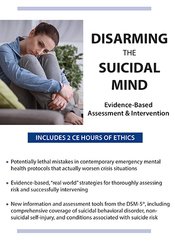
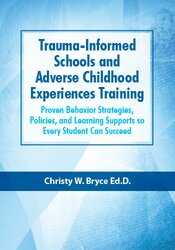

 Purchase this course you will earn
Purchase this course you will earn 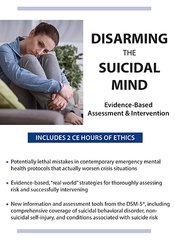
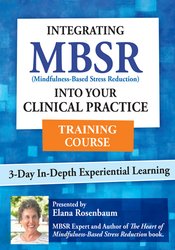
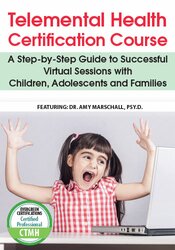
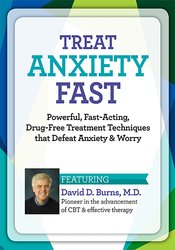
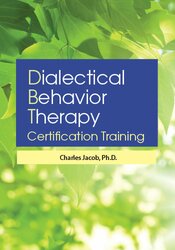

Reviews
There are no reviews yet.